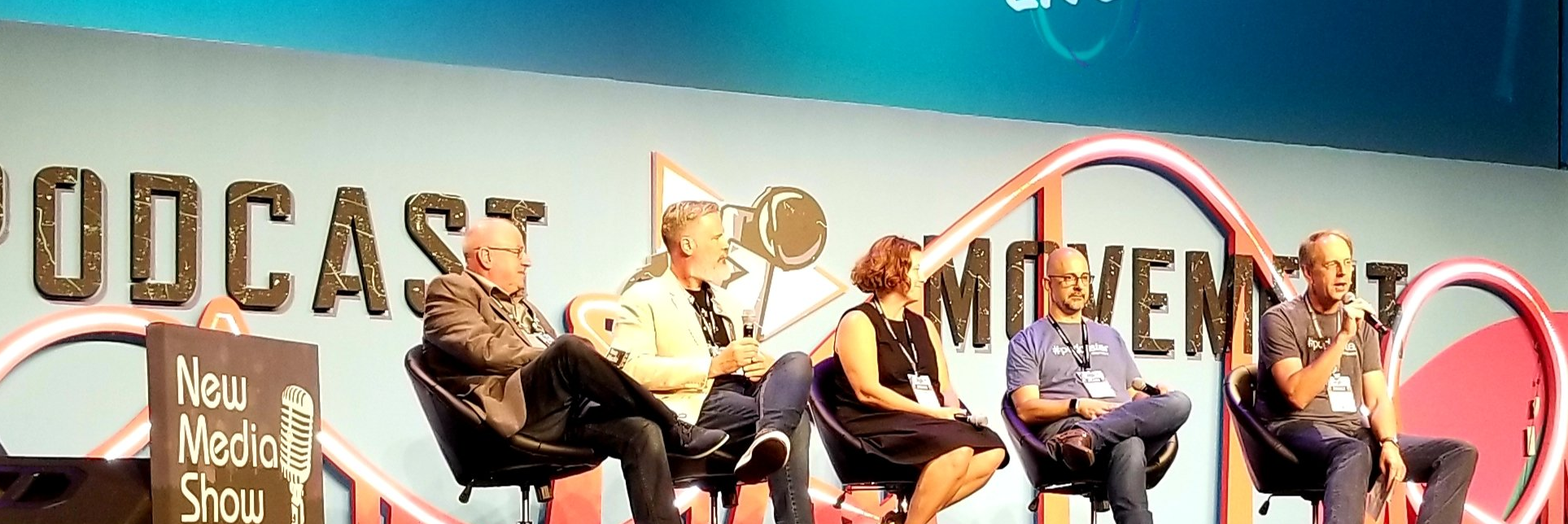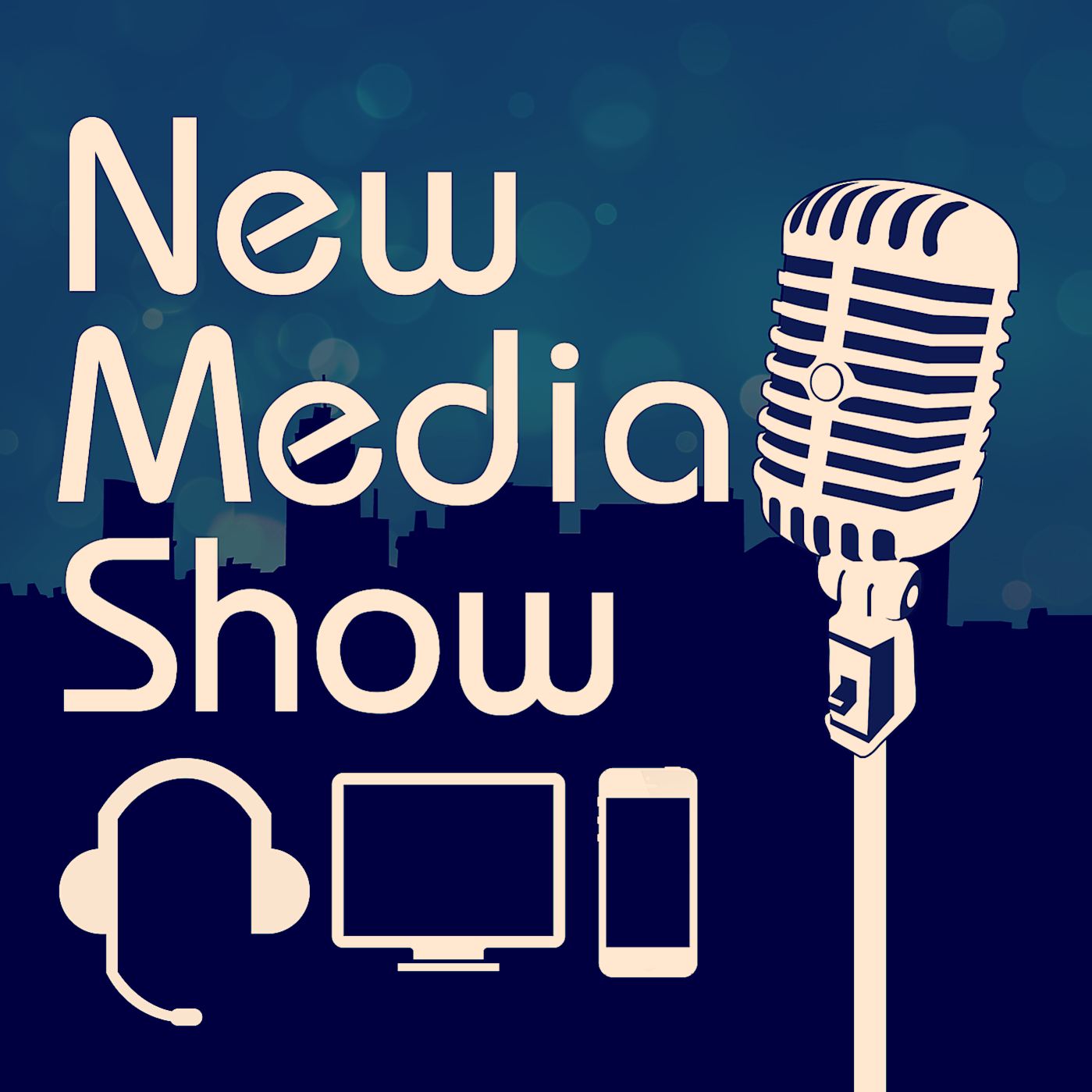By Rob Greenlee, Founder of Spoken Life Media and 2017 Podcast Hall of Fame Inductee

In this article, I will do a deep and detailed exploration of the evolving landscape of on-demand and live video in the podcasting market. I also explore various facets of this re-merging audio and video plus LIVE media in a podcast medium most recently seen as an audio-only medium.
Engagement and Personal Connection: Video podcasts foster a more intimate and engaging viewer experience. By incorporating visual elements, audiences can see the hosts’ and guests’ emotions, gestures, and nuances, creating a deeper connection and understanding. This visual layer enriches the storytelling, making the content more relatable and memorable.
Expanding Audience Reach: The dual optional nature of video and audio podcasts caters to audiences that are flexible in their media consumption as they prefer to have an option to consume the video version is different consumption methods like on a big screen TV for video and while at the gym or bus consume the audio version. Some people prefer the convenience of audio podcasts during commutes or while multitasking. In contrast, others significantly engage more with visual content when relaxed or needing a more immersive video experience. This flexibility in consumption ensures that content creators can reach a wider audience, accommodating various lifestyles and preferences.
Content Versatility and Repurposing: One of video podcasts’ most significant benefits is their adaptability. A single episode can be transformed into multiple content forms, such as full-length records plus Live and short videos for platforms like YouTube, Twitter X, LinkedIn, Instagram, TikTok, and Facebook, audio-only versions for most of the podcast consumption app platforms, and some of those same apps make a full video version available if they support video files linked from an RSS feed, like an MP3 file on the audio version. This distribution versatility maximizes getting your content in front of the most potential audience if you make evergreen content appealing to an audience beyond a short period of time, offering creators more opportunities to connect with different audience segments.
Enhanced Monetization Potential: The incorporation of video significantly broadens the reach and monetization scope for creators. It allows for more dynamic advertising models, including video ads, sponsored content, and visual product placements, which might be less impactful in audio-only formats. Audiences’ increasingly diverse consumption patterns present audio and visual monetization opportunities. This diversification of revenue streams can be crucial for the sustainability and growth of content creators.
Personalization and Complexity in Storytelling: Video podcasts and audio offer a rich platform for storytelling. Creators can utilize visual aids, on-screen graphics, and other visual elements to convey complex information in an accessible and engaging manner. This enhanced storytelling capability is precious in educational, technical, or narrative-driven content, where visual elements can clarify and enrich the subject matter.
Synergy with Social Media Trends: The rise of social media platforms prioritizing short- and long-form video content has further propelled the popularity of live videos and video podcasts. These platforms offer an ideal stage for video podcasts to flourish, providing content creators access to large, engaged, interactive communities and the opportunity to tap into viral trends.
Technological Evolution Supporting Quality and Accessibility: Video streaming and the widespread availability of ubiquitous high-speed wireless internet have democratized the production and consumption of high-resolution video content. The technological strides have made it easier for creators to produce and distribute video podcasts, ensuring a professional and accessible viewing experience for audiences worldwide. We are also seeing innovations in RSS around the Podcasting 2.0 project namespace to expand the abilities of that open download distribution method vs proprietary HLS streaming. We must be open to utilizing this HLS streaming technology outsidemassive big tech platforms like YouTube.
Meeting New Audiences Expectations: Publishing content in audio and video versions that fit with younger and even older audiences. The younger demographics strongly prefer video-based content and can increasingly consume it on mobile in vertical and landscape formats. Video podcasts align perfectly with these evolving expectations, offering a format that resonates with the visual-centric consumption habits of modern viewers. These short mobile videos increasingly display synchronized text transcriptions on screen for mute consumption in many languages via AI transcription and translation technology.
Interactivity and Community Building: Video show podcasts can enable compelling interactive experiences. Formats like live streaming with real-time audience interaction, Q&As, and polls directly engage viewers and foster loyalty and community around and outside the videos. This interactivity enhances the viewer experience and builds a more substantial relationship with the show host and other audience members.
Brand Identity and Visual Impact: Independently produced video and audio shows are a powerful brand-building tool for individual creators and companies of all sizes. The visual element of these podcast shows helps forge a distinct and memorable brand, product, services, customer education, connection, and support relationships, setting this media opportunity in the vast media landscape.
The fusion of audio and video in the form of audio/video podcasts is not just a trend but a significant re-emerging shift in content consumption. This back to the future evolution is a response to technological advancements and changing audience preferences, positioning video podcasts as an integral and future-forward component in content strategies worldwide. The article will delve into these aspects, providing insights, examples, and expert opinions to offer a comprehensive understanding of the impact and potential of video podcasts in the current media ecosystem.



